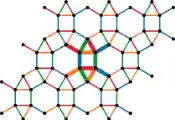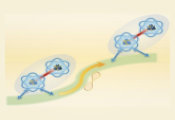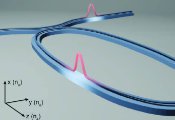Scientists Achieve World-Leading Quantum Entanglement of Molecules
January 15, 2025 -- Scientists from Durham's top-rated Physics department have set a global milestone by achieving quantum entanglement of individual molecules using cutting-edge magic-wavelength optical tweezers.
This achievement not only overcomes a fundamental challenge in quantum science but also opens up new possibilities in quantum computing, high-precision measurements, and physics research.
The researchers managed to create long-lasting entanglement between pairs of ultracold molecules, placing us among the elite few institutions worldwide capable of such work.
Unlocking new quantum capabilities
The innovation hinges on the magic-wavelength optical tweezers that allow the researchers to prepare molecules in a superposition of rotational states with exceptional stability.
The tweezers use light at a specific wavelength that creates identical energy shifts in two rotational states of a molecule, preserving coherence in the entangled state for a much longer time.
As a result, the research team achieved entanglement with record-high reliability, detecting molecular interactions previously too weak to observe.
Only three other research teams worldwide, at Harvard and Princeton, have achieved similar entanglement, underscoring the significance of Durham's accomplishment.
New opportunities
Beyond immediate advances in quantum computing and quantum memory, the research unlocks a new level of sensitivity for exploring fundamental physics.
The stability of the magic-wavelength traps makes it possible to conduct ultra-precise measurements of molecular energy shifts, an ability that is valuable for probing beyond the Standard Model of physics.
Durham's pioneering research has the potential to contribute to national quantum technology initiatives, reinforcing the UK’s standing in the global quantum field and highlighting Durham’s role in leading scientific progress.
Researchers hope this achievement will attract further investment in Durham’s quantum science programme, positioning it as a vital contributor to the National Quantum Technology Programme.




































